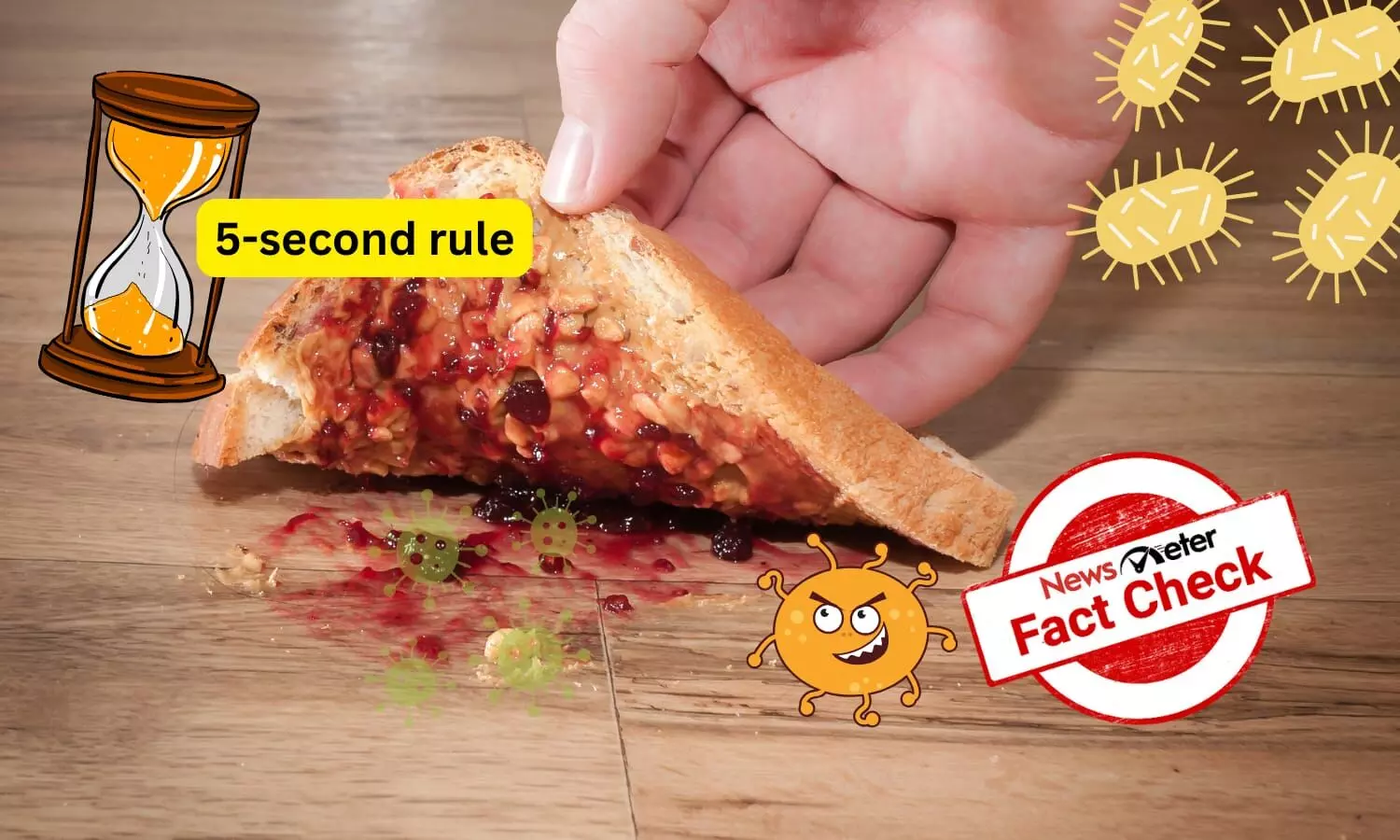Fact Check: If you drop food but pick it up within five seconds, is it safe to eat?
Here's all you need to know:
By Sunanda Naik
Hyderabad: The infamous 5-second rule to pick up any food item you dropped by mistake is decades old and is still believed and followed. The idea behind the rule is that, if you are quick enough to grab the dropped food from a surface, the microorganisms on that surface won’t have time to transfer onto your food.
In simple words, if you drop a slice of apple on the floor and pick it up within five seconds, it will be bacteria-free and safe to eat. Is that true?
Let’s dig into the facts.
Fact Check
It’s not a good idea to eat food that has been dropped. The 5-second rule is just wishful thinking. Bacteria can attach to food as soon as it hits the floor. And foods with wet surfaces, like an apple slice, pick up bacteria even more easily.
Is the 5-second rule true?
No, even if the floor looks dry and clean it is still not bacteria-free. Calling it an absolute myth, Healthline says, “The confusion lies in the fact that some environments and surfaces are safer than others. Not to mention, some foods may be safer to eat after being dropped. There are, as can be expected, varying opinions on the safety of eating food off the floor.”
Although there is not much research and studies done on the topic there is a group of researchers who conducted a small study on this.
According to a study titled ‘Rutgers Researchers Debunk ‘Five-Second Rule’: Eating Food off the Floor Isn’t Safe’ conducted by Rutger Researchers. They tested four surfaces – stainless steel, ceramic tile, wood and carpet and four different foods such as watermelon, bread, bread and butter, and gummy candy in four time periods less than one second, five, 30 and 300 seconds. They used two media – tryptic soy broth or peptone buffer – to grow Enterobacter aerogenes, a non-pathogenic “cousin” of Salmonella naturally occurring in the human digestive system.
What they found is that watermelon had the most contamination, gummy candy the least which indicates that the more the moisture the more prone to get contaminated. Next, carpet has very low transfer rates compared with those of tile and stainless steel, whereas transfer from wood is more variable.
Another study titled ‘Longer Contact Times Increase Cross-Contamination of Enterobacter aerogenes from Surfaces to Food’ to find out how bacterial cross-contamination from surfaces to food can contribute to foodborne disease. The study found that bacterial transfer is dependent on the surface, food type, contact time, and inoculum matrix.
It should be noted that a healthy adult might still get away with slight bacterial exposure but you must never compromise with young children, older adults, pregnant women, or people with compromised immune systems.
Hence, if you accidentally drop your food, it’s advisable to toss it in the trash.